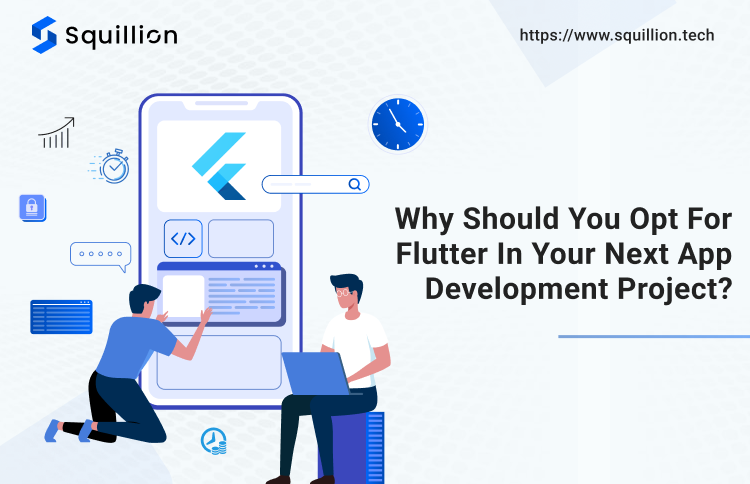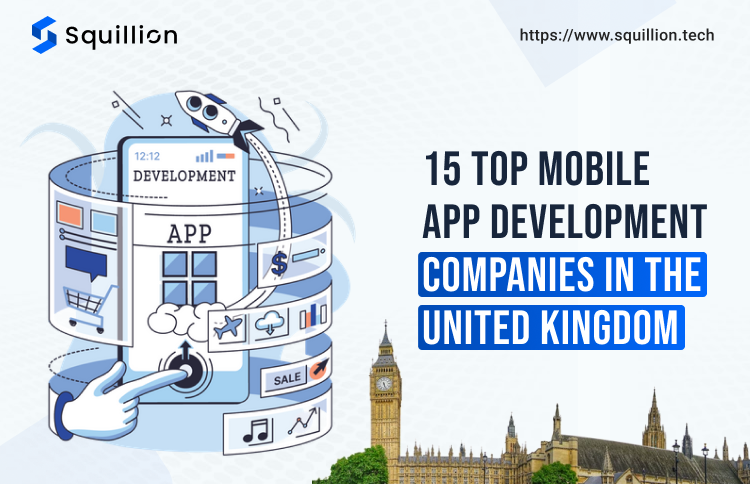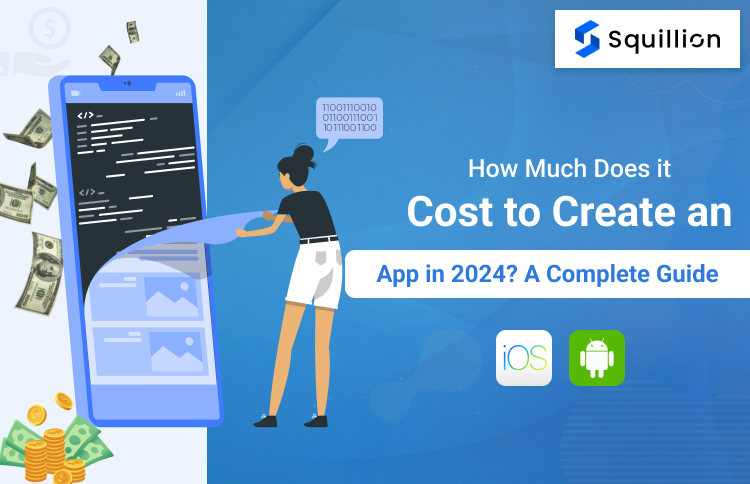In the fast-paced world of mobile app development, things are always changing, and Flutter has been a real game-changer in this dynamic environment.
Flutter, which was developed by Google, has quickly become a go-to for developers when it comes to designing mobile apps. You might be wondering, what sets Flutter apart in the crowded field of app development tools?
In this blog, we’re going to delve into the reasons why Flutter is becoming the preferred choice for both developers and businesses.
We’ll look at its ability to create cross-platform apps using a single codebase, its impressive performance, and its cost-effectiveness.
Join us as we explore the different aspects that make flutter for mobile app development the new standard in technology.
What is Flutter?
Flutter is a UI toolkit from Google that is revolutionizing how we build apps. It’s a powerful tool for creating natively generated apps from a single codebase for mobile, web, and desktop platforms.
As a result, Flutter is a popular choice among developers who want to design apps that run across several platforms. Being open-source, Flutter is accessible to everyone, fostering a community that constantly improves and evolves.
Its uniqueness lies in using the Dart programming language, also from Google, which excels in creating visually appealing and responsive user interfaces.
Flutter is about efficiency in app development, not simply appearances. It allows developers to generate code once and publish it across numerous platforms such as Android, iOS, the web, and desktop.
This cross-platform functionality marks a departure from the traditional method of separate codebases for different platforms, offering significant time and effort savings for developers.
Why does Flutter Demand rise in mobile app development?
According to a 2023 developer survey by Stack Overflow, Flutter is one of the top five most loved frameworks by developers worldwide. This surge in popularity is a testament to its growing acceptance and effectiveness in the developer community.
One of the key reasons behind this rise is Flutter’s unique approach to cross-platform development. Unlike other frameworks that simply ‘translate’ code from one platform to another, Flutter actually compiles native code.
This means apps built with Flutter perform as well as native apps built specifically for iOS or Android.
Google’s backing has also played a crucial role!
With continuous updates and enhancements, Flutter is always at the cutting edge of technology.
For instance, the introduction of Flutter 2.0 brought with it the capability to create not just mobile apps but also web and desktop applications, significantly expanding its scope and utility.
A report by Statista shows that Flutter was used by 42% of software developers for cross-platform application development in 2023, outpacing other frameworks. Statista Report
Businesses, too, are taking notice.
Flutter’s ability to accelerate development, decrease expenses, and maintain excellent performance has made it a popular choice for both startups and enterprises.
This shift can be seen in the growing number of Flutter-based apps available in app stores, which cover a wide spectrum of sectors from e-commerce to entertainment.
5 Key Advantages of Flutter for Businesses
When it comes to choosing a framework for mobile app development, businesses have a lot to consider. Flutter stands out with several key advantages that make it particularly appealing for business applications. Here’s why Flutter is becoming a favorite choice for businesses looking to develop mobile apps:
Cross-Platform Development
- Single Codebase: Flutter enables the creation of iOS and Android apps from a single codebase. This allows enterprises to reach a broader audience without requiring different development teams for each platform, resulting in considerable cost and time savings.
- Consistent User Experience: With Flutter, you can ensure a consistent look and feel across different platforms, which is crucial for brand identity and user experience.
Faster Time to Market
- Rapid Development: Flutter’s hot reload feature enables developers to see changes in real time, speeding up the app development process. This implies that enterprises may get their products to market considerably faster.
- Less Testing: Since the same app runs on both platforms, the testing time is reduced, further speeding up the time to market.
Cost-Effectiveness
- Reduced Development Costs: With a single codebase, the overall development effort is less, which translates into lower costs.
- Lower Maintenance Costs: Updating and maintaining a single codebase for iOS and Android is more efficient and less costly than managing separate codebases.
High Performance
- Native Performance: Flutter apps are compiled into native code, which ensures excellent performance and a smooth user experience comparable to native apps.
- Customizable Widgets: Flutter’s rich set of fully customizable widgets allows for the creation of complex UIs that are both fast and flexible.
Strong Community and Support
- Google’s Support: Being a Google product, Flutter is well-supported, with regular updates and a roadmap for future enhancements.
- Growing Community: A robust and active community means businesses can benefit from shared knowledge, resources, and third-party plugins, reducing development time and costs.
6 Emerging Trends in Flutter Development in 2024
Understanding the growing flutter trends is critical for businesses trying to stay ahead in the world of technology. Here’s how the latest advancements in Flutter are shaping the future of app development and what it means for your business:
1. Integration of AI and Machine Learning
Incorporating AI and ML into Flutter apps allows for personalized user experiences. This means your app can learn from user interactions and tailor content, recommendations, or functionality to individual users, enhancing customer engagement.
AI-driven analytics can provide deeper insights into user behavior, helping businesses make data-driven decisions.
2. Virtual and Augmented Reality (VR and AR) Experiences
AR and VR features in Flutter apps may provide consumers with more immersive and engaging experiences. This is especially advantageous for businesses in retail, commercial real estate, and education, as it provides clients with an innovative way to interact with products or services.
By adopting these technologies, your business can stand out in the market, offering cutting-edge solutions to your customers.
3. Progressive Web Apps (PWAs) with Flutter
PWAs developed with Flutter can work seamlessly across all platforms and devices, ensuring a wider reach. This is especially useful for businesses looking to maximize their online presence without building separate native apps.
PWAs are easier to maintain and update, offering a cost-effective solution for businesses to stay digitally relevant.
4. Internet of Things (IoT) Applications
Flutter’s compatibility with IoT can revolutionize how businesses interact with smart devices. This integration can lead to more efficient functions, especially in industries like manufacturing, logistics, and healthcare.
IoT applications open up new avenues for innovation, allowing businesses to offer advanced services and solutions to their customers.
5. Cross-Platform Development for Wearables and Smart Devices
Flutter’s ability to develop wearables and other smart devices means businesses can expand their digital ecosystem beyond smartphones and tablets.
Offering a consistent brand experience across multiple devices strengthens brand identity and customer loyalty.
6. Accessibility Features for Inclusive App Development
The accessibility emphasis of Flutter guarantees that apps are usable by individuals with a wide variety of abilities, broadening your app’s user base.
Prioritizing accessibility reflects a business’s commitment to social responsibility and enhancing its brand image.
5 Tips for Businesses Getting Started with Flutter
Embarking on the journey of app development with Flutter can be an exciting venture for any business. To ensure a smooth and successful experience, here are five essential tips:
1. Understand Your Business Needs
Before diving into development, have a clear understanding of what you want your app to achieve. This helps in aligning the app’s functionality with your business goals.
Understand your target audience. Your app’s design and functionality should appeal to the demands and priorities of your target consumers.
2. Familiarize Yourself with Flutter’s Capabilities
Instead of trying to grasp everything on your own, seek insights from Flutter experts. They can guide you through Flutter’s capabilities and how they align with your specific business needs.
Experts can provide a clear picture of how Flutter can be leveraged for your project, helping you make informed conclusions and set realistic expectations.
3. Choose the Right Development Partner
Look for a development agency that specializes in Flutter. Check their portfolio for past Flutter projects to gauge their experience and skill level.
Choose a partner who communicates effectively and is open to collaboration. A good development partner should understand your vision and be able to provide constructive feedback.
4. Plan for Cross-Platform Compatibility
Make use of Flutter’s cross-platform functionality. Ensure that your app delivers a uniform and smooth user experience throughout all devices and platforms.
Rigorous testing across platforms is crucial. This ensures that your app performs well on both Android and iOS devices.
5. Keep Future Scalability in Mind
Ensure that the app’s architecture is scalable. As your business grows, your app should be able to accommodate increasing user numbers and evolving features.
Technology evolves rapidly. Plan for regular updates to your app to keep it relevant and efficient with the latest Flutter advancements.
Need Help with Your Flutter App?
As we wrap up our exploration of Flutter and its transformative influence on mobile app development, it’s clear that Flutter offers a world of possibilities for businesses looking to innovate and stay ahead in the digital landscape.
With its cross-platform capabilities, cost-effectiveness, and the backing of a strong community, Flutter stands out as a smart choice for developing modern, efficient, and impactful mobile applications.
However, venturing into the world of Flutter app development can be daunting, especially if you’re new to the framework or mobile app development in general.
That’s where finding the right partner becomes crucial. You need a team that not only understands Flutter inside out but also aligns with your business vision and goals.
Squillion Technology: Your Ideal Flutter Development Partner
Squillion Technology specializes in using Flutter to bring your app ideas to life. Our team of professionals is proficient in utilizing Flutter’s full potential to develop apps that are not only visually appealing but also strong, scalable, and user-friendly.
Whether you’re a startup or an established enterprise, our comprehensive Flutter mobile app development services are designed to cater to your unique needs.
Why Choose Squillion Technology?
- Expertise in Flutter: Our developers are well-versed in Flutter, ensuring top-notch quality and performance for your app.
- Customized Solutions: We comprehend that every business is unique. That is why we provide customized solutions to meet your individual needs.
- Collaborative Approach: We believe in collaborating with our clients to ensure that their vision is correctly reflected in the app.
Embarking on your Flutter app development journey with Squillion Technology means partnering with a team that’s committed to your success. We’re here to help you every step of the way, from concept to launch and beyond.
Ready to start your Flutter app development project? Connect with us today and take the first step toward making your app concept a reality using Flutter. Let’s create something amazing together!





